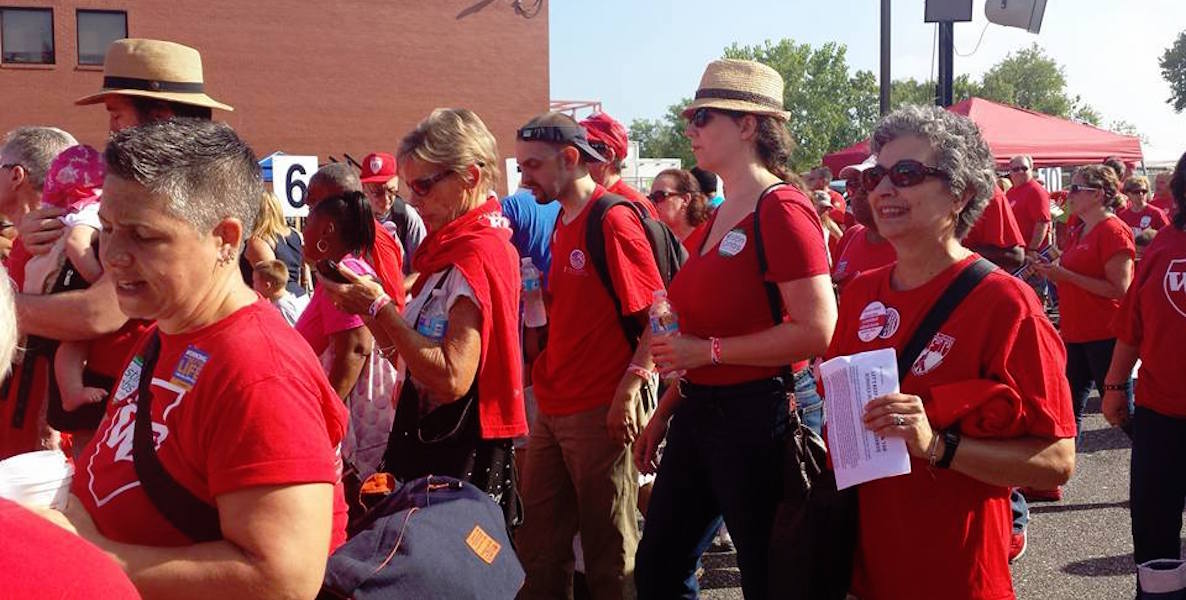In Philadelphia, the debate about schools always comes back to the same thing: lack of funds. In Rochester, when Lovely Warren, at age 36, was sworn in as the first female mayor in 2014, she faced an entirely different education problem: That city was spending double what we spend here, but still getting terrible results.
Join the Citizen, in partnership with the Barnes Foundation, for a DNC watch party, private access to The Barnes, and a panel discussion with four forward-thinking American mayors on how to disrupt government as usual. Featuring:
- John Fetterman of Braddock, PA
- Svante Myrick of Ithaca, NY
- Alex Torpey of South Orange, NJ
- Lovely Warren of Rochester, NY
On Thursday July 28th, 6 pm to 10 pm
$5 admission
In her bid to become just the second African American mayor of the city, Warren—a rising star in the Democratic Party, dubbed “Mother Mayor” for her ambitious caretaker’s agenda—tapped into widespread disgust in Rochester over decades of deplorable student achievement, particularly among the city’s low-income and minority populations. The public school system, which serves nearly 30,000 students, routinely produces some of the worst test results among comparable cities in the state, and the high school graduation rate hovers around the 50 percent mark. About 30 percent of students have what the system considers to be a high absentee rate.
This despite the fact that at $26,392 per student, Rochester receives among the highest allocations in New York state, more than 60 percent above the state average of $17,548, according to school funding data published by National Public Radio.
Warren, on a mandate to fix her city’s schools, faced one more obstacle: The school district operates independently of the city, so even though it receives $120 million each year from Rochester’s coffers, the city government has no say over how the money is spent—an old fight Warren saw during her seven years on City Council before becoming mayor, and one she says she will not rehash.
Warren has looked for—and found—innovative ways to maneuver around those constraints, rallying businesses, foundations and citizens around the idea that Rochester can do better for its children.
Instead Warren has looked for—and found—innovative ways to maneuver around those constraints, rallying businesses, foundations and citizens around the idea that Rochester can do better for its children. Among her first acts as mayor, Warren convened an Early Learning Council, a nearly 20-person panel of education, business and community leaders that held a series of public meetings and focus groups with parents, teachers and experts. Based on their recommendations, she launched her signature “3 to 3 Initiative,” a mix of programs focusing on the academic and social development of children in their key years from age three to third grade—when experts say children need to be at grade level for reading and math, or they will never catch up.
To support the new initiative, Warren reallocated city funds from other departments, tapped existing city properties to house the new endeavors, and rallied community organizations to pitch in. She also turned to outsiders for help. To fund health and developmental screenings for three year olds, intended to help track children who have issues that need to be immediately addressed and followed over time, the city turned to local foundations and the United Way of Greater Rochester. The city also obtained a $12 million grant from the state for Rochester schools to offer full-day pre-kindergarten to its 1,000 three year olds, and the city collaborated with the school district, community groups and landlords to find space for the program.
Although definitive results are years away, signs appear to be pointing in the right direction. A progress report published earlier this year for 2015—the first full calendar year of the program—found that nearly 2,000 3 to 3 students participated in reading programs at city branch libraries, which also now loan or give out 25,000 books each month.
Warren—a rising star in the Democratic Party, dubbed “Mother Mayor” for her ambitious caretaker’s agenda—tapped into widespread disgust in Rochester over decades of deplorable student achievement, particularly among the city’s low-income and minority populations.
Warren has just begun. In her State of the City in April, she announced a plan to create a new school district within Rochester for its worst performing schools—something modeled on New York’s receivership law, which places chronically low-performing schools in the hands of an independent manager as a way to accelerate their improvement. This “Rochester Achievement School District”—similar to those in Tennessee and New Orleans, and to one proposed last year in Pennsylvania—would let the city gain control of as many as 28 city schools and their budgets. With this idea, Warren has waded into what could be the biggest political battle of her career so far—especially since New York state law doesn’t quite allow for the radical change Warren has proposed. Warren has launched a lobbying campaign to change that.
Still, Warren acknowledges that none of these programs will help her city without a healthy and prosperous community to support them. That’s why she directed the Rochester Police Department to return to neighborhood-based community policing that implements smaller police beats so officers can build a better bond in the neighborhoods where they’re based. She has boosted creative jobs programs and opportunities, such as the Young Adults Manufacturing Program aimed at giving young workers adequate manufacturing skills for the workplace. And she’s implemented a new worker-owned co-op business program in high-poverty areas of Rochester with the hope of creating good, reliable jobs by contracting with major local institutions, such as hospitals and universities, to provide goods and services like laundry and food services.
Warren notes that better education and ending the cycle of poverty go hand-in-hand—and that too often it’s invisible to many of Rochester’s residents.
“You can live in Rochester your whole life and never see poverty because where you sit determines what you see,” Warren said last year at an income inequality policy forum, adding, “Somebody has to break the cycle of poverty so that people in that family can see and believe there is a way out.”
Lovely Warren in City of Rochester Welcome video.






